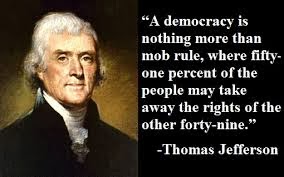Stuart Hackett's The Resurrection of Theism: Prolegomena to Christian Apology
A Tribute to Stuart C. Hackett (1925-2012)
by Paul Copan

Last
week, Stuart Cornelius Hackett (b. 1925)—a beloved philosophy
professor, friend, and brother in Christ—departed this life to go where
all true believers long to be. His mental brilliance, affected in his
later years by Alzheimer’s, has been restored, and he is a now a clearer
thinker than anytime during earthly days.
When I began to study at Trinity Evangelical Divinity School in 1985, my
very first class during my first quarter—we didn’t have “semesters”
then—was Hackett’s “Religious Epistemology” class. This remarkable
course introduced me to rationalism, empiricism, testing truth claims,
Kant and the synthetic a priori. My eyes were being opened to the larger
world of philosophy, and just a few weeks into the semester I was more
than sufficiently inspired to pursue an M.A. degree in philosophy of
religion—in addition to my M.Div. degree. I would write my master’s
thesis on “The Impossibility of an Infinite Temporal Regress of
Events”—an argument Hackett resurrected from medieval Jewish and Muslim
philosophy and utilized in his
Resurrection of Theism. (Of course,
William Craig, also a former student of Hackett’s,
has been most closely identified with this theistic proof—now referred
to as the kalam cosmological argument.) Hackett’s early influence on my
study of philosophy led me to dedicate my 2007 book
Loving Wisdom to him.
As for the personal side of Dr. Hackett, he was quite colorful, both in
personality and in his dress. He would wear brightly- and
outrageously-colored, mismatched polyesters to class. One day he told
us, “My wife wanted me to be sure to tell you that she does not approve
of what I’m wearing today.” In addition to sporting thick black-framed
glasses, he would keep his hair quite short and his beard barely
longer—perhaps ten days’ growth of stubble. Once, when Hackett was
wearing his well-worn dark overcoat in the middle of winter, someone at
Trinity commented that it looked like someone had dragged him onto the
seminary property off the streets of Chicago! One day in class, Stu
Hackett told us, “I am often described as a weird person...I don't know
that I'm weird in an absolute sense—I mean I'm not a werewolf or a
vampire or anything like that. I'm just highly individualistic.”
He was an enthusiastic teacher who would often greet us in Latin,
Pax vobis cum—and then finish the reply himself—
et te cum spiritu. He would cite Francis Thompson’s
Hound of Heaven,
telling us that we needed to move ahead with “unperturbed pace,
deliberate speed, and majestic instancy.” He was ever full of good
humor—to the point that some students complained that they weren’t
getting their money’s worth in class: “I'm gonna' lay this stuff on you
like one great big metaphysical egg!” Confessing that “I don’t have a
Reformed bone in my body,” he summarized his credo: "I'm a whiskey
Calvinist—of the five points, I can only swallow one fifth.” (His wife
Joan once told me that for an entire afternoon, the Calvinist theologian
Roger Nicole doggedly tried to persuade Hackett to become a Calvinist.
But it was not predestined to be.)
To add to the atmosphere, Hackett would specialize in extraordinarily
long, Germanic-style sentences, which called for focused vigilance so as
not to lose the thread of what he was saying. To give you an idea, here
is a sample sentence—yes, one sentence—taken from his book
The Reconstruction of the Christian Revelation Claim:
I

f
the very possibility of a contingent cosmos or world order is fully
conceivable only through its dependence on a transcendent realm of
essence and directive selection; and if the very notion of an actually
infinite series of past temporal states of the temporal universe
involves a self-contradiction, whether that universe is construed in
mentalistic or materialistic terms; and if the pervasion of the universe
by significant order or purposive adaptation is itself best explained
through an operation of transcendent self-directive mind through its own
operative causality—and these are the very claims that our previous
arguments have defended as plausible—then the supposition that selfhood
(self-awareness, conceptualization, and self-direction) could not be
explained in terms of material constituents, which themselves require
explanation on transcendent and essentially immaterial or spiritual
grounds, seems questionable indeed (p. 110).
Dr. Hackett was a friend to so many, and we loved him, eccentricities
and all. He was a dedicated follower of Christ, who would read through
his Greek New Testament each year. When he retired, he began to brush up
on his Hebrew so that he could resume reading the Old Testament in that
language. He prayed before every class, and he would often offer words
of spiritual encouragement to his students. Before he came to school
each day, he prayed that if he said anything false, this teaching would
simply fall to the ground and be forgotten. But if he taught what was
true, he prayed that it would be forever emblazoned upon his students’
minds. (Of one of his theological opponents, Hackett said, “If that
person had prayed that prayer, he would have died in utter obscurity!”)
All of us philosophy students would gather together at the Hackett home
for our regular end-of-the-quarter bash—complete with Sarah Lee sweets
accompanied by guitar music by our beloved professor, who would sing
self-composed songs such as “Plato, dear Plato, how I love you!” Just
before I graduated, someone took a picture of a group of us at his home.
When I visited the Hacketts years later in Glen Ellyn, Illinois, I saw
this photo underneath the glass top of his desk. His wife Joan told me
that it was a reminder for him pray for us, which he did every day.
Hackett—or “Big Stu” as he enjoyed being called—taught and inspired
not only me, but other philosophers and apologists, including
William Lane Craig,
Stephen Evans,
Jay Wood,
Mark McLeod-Harrison,
Chad Meister,
Mark Linville,
Mark Mittelberg, Nicholas Merriwether, and many more. Others influenced by Hackett include the pastor and author
John Piper
as well as own pastor Dennis Reiter, with whom I worked in Storrs,
Connecticut; they, along with many others, benefited from his
philosophical teaching while at Wheaton College, where he taught
alongside
Arthur Holmes before he was at Trinity.
Preferring to call himself a “student of philosophy” rather than a
“philosopher,” Dr. Hackett wrote several articles for professional
journals such as the International Journal for Philosophy of Religion.
He also authored four books:
Oriental Philosophy,
The Resurrection of Theism,
The Reconstruction of the Christian Revelation Claim, and
The Rediscovery of the Highest Good.
Hackett’s Oriental Philosophy (University of Wisconsin Press) is a
superb introduction to the topic (Hackett had even gone to India to
learn Sanskrit as part of this writing endeavor). The latter three books
are rigorous, lucid texts covering epistemology, apologetics,
philosophy of religion, and ethics. They are currently available through
Wipf and Stock, and I would encourage you to explore these writings of a
noteworthy philosopher from a previous generation. In addition, I
should mention a Festschrift in Hackett’s honor was published in 1990,
The Logic of Rational Theism
(Edwin Mellen Press), coedited by William Lane Craig and Mark McLeod.
Hackett offered a response to these essays, which can be found at
The Interactive Hackett—a website that Tim Cole, a former classmate and Hackett student, has maintained and updated over the years.
Though Hackett kept a low profile and did not receive the attention he
rightly deserved, his legacy lives on through many of the students he
faithfully served and taught over the years—not to mention others who
have benefited from his writings. His quiet, faithful ministry reminds
me of the heroine in George Eliot’s
Middlemarch, Dorothea:“But
the effect of her being on those around her was incalculably diffusive:
for the growing good of the world is partly dependent on unhistoric
acts; and that things are not so ill with you and me as they might have
been, is half owing to the number who lived faithfully a hidden life,
and rest in unvisited tombs.”
Give thanks with me for Stuart Hackett’s legacy. We have been enriched,
made wiser, and better equipped to be witnesses to the good news of
Jesus Christ through this faithful servant. “Blessed are the dead who
die in the Lord…for their deeds follow them.”
 Philosophy that inspired the Greeks was intensely concerned with questions about the good life.
Philosophy that inspired the Greeks was intensely concerned with questions about the good life. However, a challenge to this contemporary conception of philosophy seems well within the domain of the philosophical tradition. I conclude that edifying concerns, both ethical and religious, do not preclude entering into a serious philosophical conversation, including a conversation about the relation between philosophical reflection and edification. (Adapted from Stephen Evans, Kierkegaard: An Introduction.)
However, a challenge to this contemporary conception of philosophy seems well within the domain of the philosophical tradition. I conclude that edifying concerns, both ethical and religious, do not preclude entering into a serious philosophical conversation, including a conversation about the relation between philosophical reflection and edification. (Adapted from Stephen Evans, Kierkegaard: An Introduction.)

























 Last
week, Stuart Cornelius Hackett (b. 1925)—a beloved philosophy
professor, friend, and brother in Christ—departed this life to go where
all true believers long to be. His mental brilliance, affected in his
later years by Alzheimer’s, has been restored, and he is a now a clearer
thinker than anytime during earthly days.
Last
week, Stuart Cornelius Hackett (b. 1925)—a beloved philosophy
professor, friend, and brother in Christ—departed this life to go where
all true believers long to be. His mental brilliance, affected in his
later years by Alzheimer’s, has been restored, and he is a now a clearer
thinker than anytime during earthly days.










